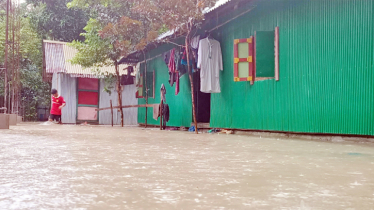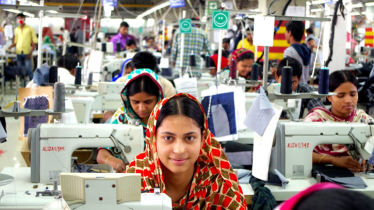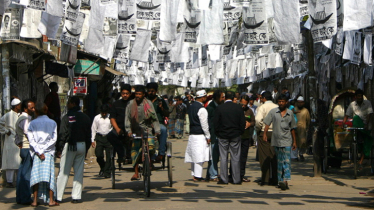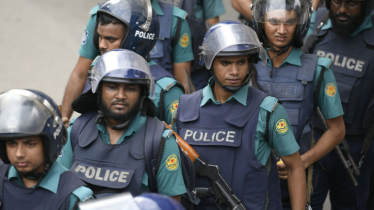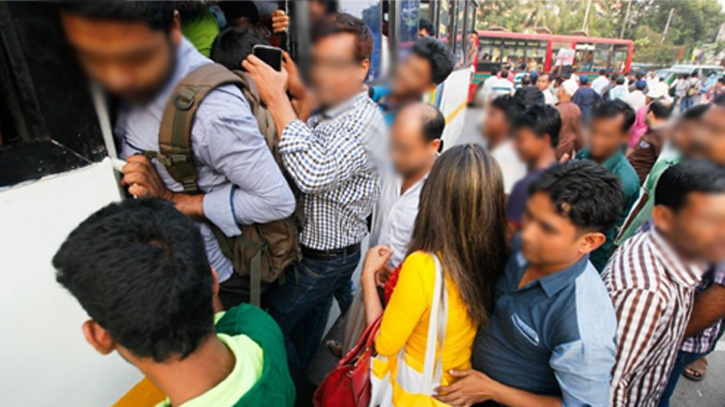
Photo : Collected
The women's city commuter services are an unspeakable and disgusting experience for regular commuters to take part in work and business. Mobility, after all, defines how far one can go. Despite statutory obligations according to Article 28 of Section 2 of the constitution of Bangladesh, "Women shall have equal rights with men in all spheres of the State and of public life," women remain an invisible population.
In Dhaka's private and government city bus services, there is a designated seat for women passengers under a law of the Bangladesh Road Transport Authority (BRTA). In 2008, the government mandated bus owners to allocate nine seats reserved for women, children, and individuals with special needs.
However, most chauvinist, anti-feminist, misogynist, and woman-haters would say women passengers are bothersome during peak hours. The newly inducted Metro Rail has introduced an exclusive women’s compartment. State-run Bangladesh Road Transport Corporation (BRTC) introduced exclusive bus services for women and girl students in 2010 on certain routes of the capital Dhaka.
The passengers include mostly service holders, students, mothers who commute to their children's schools and women who travel out of necessity. Male passengers are prohibited in these buses. Although the drivers are male, the conductors are female. One can see that scores of desperate women are struggling to get onto the buses during peak hours to reach their desired destinations.
It’s an everyday scenario that male passengers forcibly sit in the women's reserved seats and refuse to give away for women passengers boarding the bus. The hostile passenger shouts, screams, bullies and humiliates the women for simply requesting them to vacate the reserved seats, they remain seated until their destination of disembarkation arrives.
The bus staff do not get involved in daily quarrels, as they say they are also fade-up, requesting male passengers not to occupy the reserved seats. Such occurrences are also happening with all-women compartments in Metro Rail. No news has been heard of punitive measures exercised in Metro Rail and city commuters for delinquent male passengers.
The violators should be penalised for occupying seats designated for women. During peak hours, conductors, assistants and drivers refuse to let women board the buses. Even male passengers loudly echo with the bus staff not to allow women to board the bus.
According to a BRAC study titled 'Sexual harassment and accident-free roads for women', 94 per cent of women in the country face sexual harassment while travelling by public transport. Both bus staff and aberrant passengers commit such crimes. Regulatory bodies intermittently should check buses during peak hours for offenders. The best would have been the International Women's Day on March 8 to demonstrate solidarity with women's rights.
Messenger/Fameema


